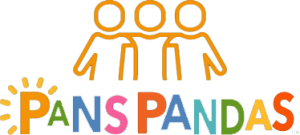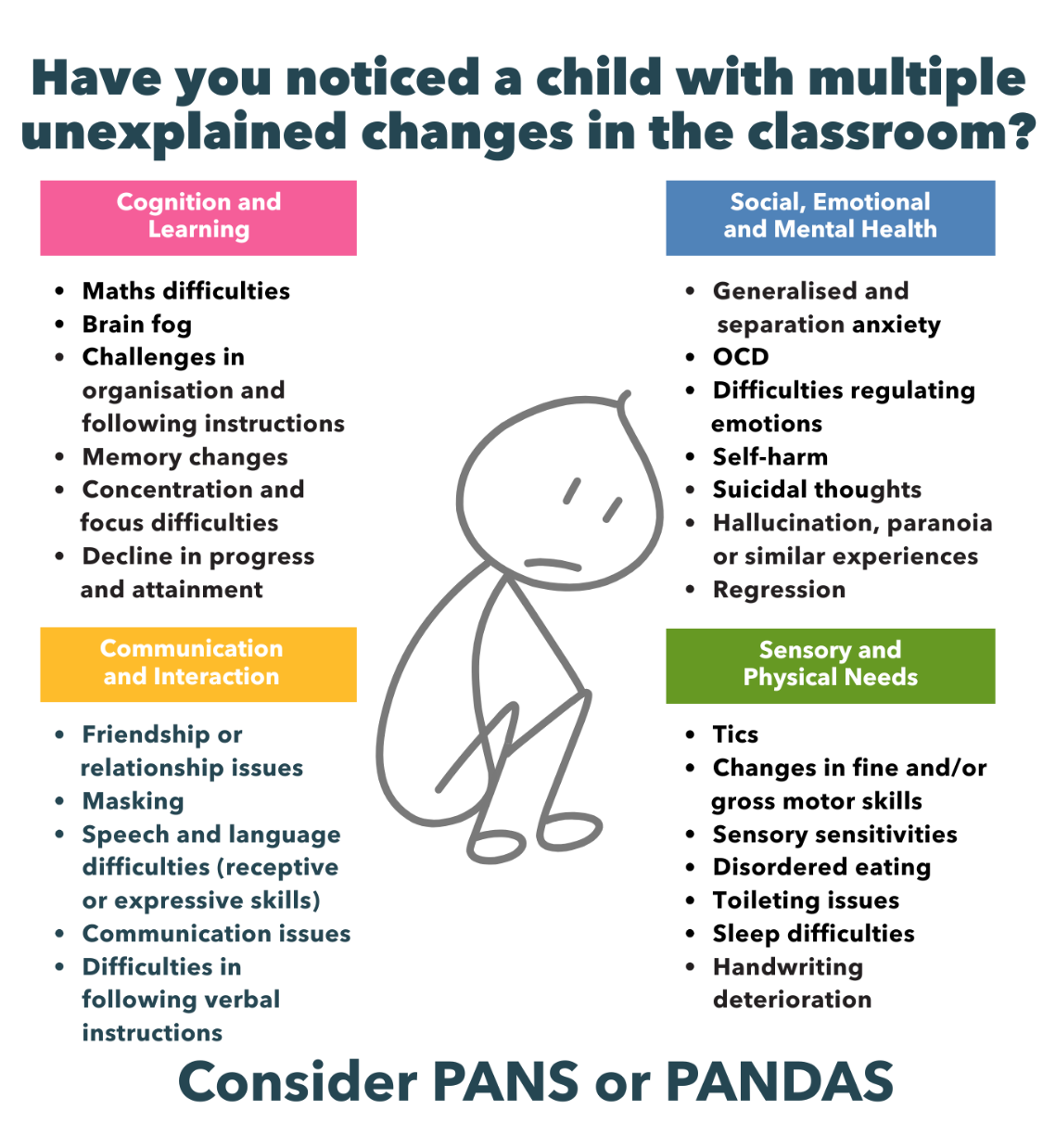Our CPD-accredited training helps support children and young people by raising awareness of PANS and PANDAS among educational, social, and healthcare professionals.
Here, you will find all the resources that are signposted during the training, as well as other information we think you may find useful.
If you have any questions about the training or would like to arrange a bespoke session for your team or workplace, please get in touch with our Education Team.

Why is Teacher Training needed?
PANS and PANDAS diagnoses are on the rise thanks to recent progress in the medical field. Multi-disciplinary professionals are currently working nationally to advance clinical care, and to raise awareness across the board of education, social care and health professionals. Royal College of Paediatric and Child Health (RCPCH) endorsed UK clinical guidelines and guidance for Local Authorities in England are expected within the next six to 12 months.
Both PANS and PANDAS can have a devastating impact on a child or young person’s education, due to both their sudden onset and the wide range of areas they can affect. Unlike other conditions that show gradual signs, these conditions can cause abrupt and severe unexpected learning difficulties.
Limited awareness amongst professionals, coupled with symptom overlap with Autism, ADHD, and anxiety disorders for example is causing low levels of wellbeing and poor educational outcomes for children and young people living with these conditions.
Please share this flyer with anyone you think may benefit from our Teacher Training:
Quotes from professionals who attended the training in 2025:
“Brings to light the information that educators themselves can recognise, but may not have necessarily known to be PANS or PANDAS.”
“Opens up dialogue between parents, schools and doctors.”
“[We’re] supporting a child with PANDAS in our school. This training was especially useful for me to support and understand the needs of the child.”
“The training was incredibly insightful and I can go away with more knowledge and understanding.”



